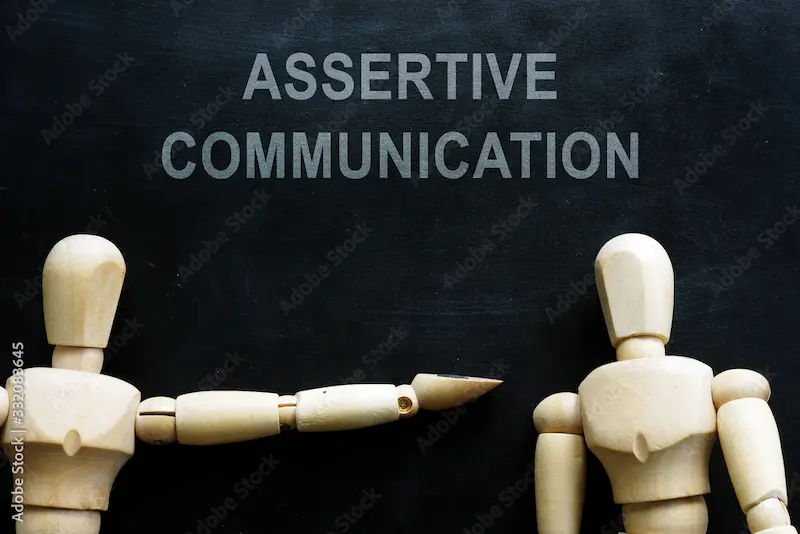Ageing And Mental Focus Improvement: Tips To Enhance Cognitive Function And Clarity
Discover effective strategies for improving mental focus and cognitive health as you age. Learn about lifestyle changes, exercises, and supplements that support brain function for better focus and clarity in daily life.

Written by Dr.Sonia Bhatt
Last updated on 3rd Jul, 2025

As we age, many of us notice subtle shifts in our mental sharpness—a forgotten name here, a misplaced set of keys there. While it’s true that ageing brings natural changes to the brain, the narrative that cognitive health inevitably deteriorates is far from complete. Mental focus and clarity aren’t just products of genetics or luck; they’re profoundly influenced by how we nurture our brains over time.
Ageing affects mental focus in nuanced ways. Processing speed may slow, multitasking can feel more challenging, and filtering distractions might require extra effort. These shifts stem from structural changes in the brain, such as reduced volume in areas like the prefrontal cortex (critical for decision-making) and fluctuations in neurotransmitter levels. However, this isn’t a one-way street. The brain retains neuroplasticity—its remarkable ability to rewire and adapt—well into older age. This means that while some decline is typical, severe cognitive impairment isn’t an unavoidable rite of passage.
Understanding Ageing and Cognitive Decline
Ageing is an inevitable, multifaceted process that affects every cell, organ, and system in the body—including the brain. While some cognitive changes are a natural part of ageing, understanding the why and how behind these shifts can empower us to approach ageing with clarity and agency. Let’s delve into the science of ageing and its relationship to cognitive health.
Common Cognitive Changes in Ageing: What’s Normal?
Not every lapse in memory or focus signals declines. Many shifts are part of healthy ageing and don’t impair daily life. Here’s what to expect:
Slower Processing Speed: It may take longer to absorb new information or react to complex tasks (e.g., learning a new app or navigating busy traffic).
Mild Memory Lapses: Forgetting names or misplacing items occasionally is typical. This differs from dementia, which disrupts routine functions like managing finances or recognizing loved ones.
Difficulty Multitasking: Juggling multiple tasks simultaneously becomes more challenging as the brain prioritizes efficiency over novelty.
Factors Influencing Mental Focus in Older Adults
Mental focus in older adults isn’t solely a matter of chance—a dynamic interplay of biological and lifestyle factors shapes it. While ageing brings natural changes to the brain, understanding these influences empowers us to take proactive steps. Let’s explore how biology and daily habits shape cognitive sharpness.
1. Biological Factors
Neuroplasticity: The brain’s ability to reorganize and form new neural connections—remains active throughout life, though it may slow with age. This adaptability is crucial for learning and memory.
Ageing Impact: While synaptic plasticity (efficiency of neural communication) may decline, activities like learning new skills or solving puzzles can stimulate growth in the hippocampus, a brain region vital for focus.
Hope in Science: Neuroplasticity can be boosted even in older adults through targeted mental exercises, such as language learning or musical training.
2. Brain Health
Blood Flow: Reduced cerebral blood flow, often due to cardiovascular changes, can impair attention and processing speed.
Neurotransmitters: Declining levels of dopamine and acetylcholine—chemicals essential for alertness and memory—may slow reaction times.
Brain Volume: Shrinkage in the prefrontal cortex (responsible for decision-making) and white matter (nerve fibres connecting brain regions) can affect multitasking and focus.
3. Lifestyle Factors
The choices we make daily, from nutrition to exercise and sleep, play a key role in shaping our cognitive health and mental well-being.
A. Diet
What we eat directly affects brain function. Key nutrients include:
Omega-3 Fatty Acids (found in fatty fish and walnuts) Support synaptic plasticity and reduce inflammation.
Antioxidants (berries, dark leafy greens): Combat oxidative stress linked to cognitive decline.
B Vitamins (eggs, legumes): Aid neurotransmitter production.
B. Exercise
Physical activity is a cornerstone of cognitive health:
Aerobic Exercise (walking, swimming): Boosts blood flow and stimulates brain-derived neurotrophic factor (BDNF), a protein that supports neuron growth.
Strength Training: Enhances executive function, likely by improving glucose metabolism.
C. Sleep
Poor sleep disrupts memory consolidation and impairs focus.
Ageing Challenges: Older adults often experience lighter sleep and more nighttime
Mental focus in older adults isn’t a fixed trait—it’s a skill shaped by biology and behaviour. Nurturing neuroplasticity through diet, movement, and restorative sleep can sharpen the cognitive edge.
Foods to Include in a Diet for Improved Mental Focus
Incorporating a variety of nutrient-dense foods into your diet can significantly enhance cognitive health. Here are some brain-boosting foods to consider:
Fatty Fish: Rich in omega-3 fatty acids, fatty fish like salmon and sardines are excellent for brain health. Aim to include fish in your diet at least twice a week.
Berries: Berry, packed with antioxidants, can help improve memory and cognitive function. Add them to smoothies, yoghurt, or oatmeal for a delicious and nutritious boost.
Leafy Greens: Vegetables like spinach, kale, and collard greens are rich in vitamins and antioxidants. For added nutrition, incorporate them into salads, smoothies, or stir-fries.
Nuts and Seeds: Nuts, especially walnuts, and seeds like flaxseeds and chia seeds are great sources of omega-3s and antioxidants. Snack on a handful or sprinkle them on salads and yoghurt.
Whole Grains: Whole grains like oats, quinoa, and brown rice provide a steady energy source for the brain. They help maintain stable blood sugar levels, which is essential for focus and concentration.
Dark Chocolate: Dark chocolate contains flavonoids, caffeine, and antioxidants that can enhance memory and improve mood. Enjoy it in moderation for a tasty brain boost.
Eggs: Eggs are a great source of choline and B vitamins. They can be enjoyed boiled, scrambled, or as part of a hearty breakfast.
Avocados: Avocados are rich in healthy fats and vitamin E, making them a great addition to salads, smoothies, or as a spread on whole-grain toast.
Aim for a balanced diet rich in these key nutrients to support cognitive health and improve mental focus. Consider meal planning to ensure you’re incorporating a variety of brain-boosting foods throughout the week. Simple changes, like swapping out refined grains for whole grains or adding a serving of berries to your breakfast, can make a significant difference over time. Nutrition is a powerful tool for enhancing cognitive function. By prioritizing brain-healthy foods, you can nourish your mind and support your mental focus as you age.
Types of Exercises That Enhance Cognitive Function
Engaging in regular physical activity is not only beneficial for physical health but also plays a vital role in enhancing cognitive function. From aerobic exercises that increase blood flow to the brain, to strength training that supports neural health, and mind-body practices that promote mindfulness, each type of exercise offers unique cognitive benefits. By incorporating these activities into your routine, you can sharpen your mental acuity, enhance memory, and foster overall cognitive resilience, paving the way for a healthier mind and body.
1. Aerobic Exercise
What It Is: Activities that raise your heart rate, like brisk walking, swimming, cycling, or dancing.
Why It Works: Aerobic exercise increases blood flow to the brain, delivering oxygen and nutrients while promoting the release of brain-derived neurotrophic factor (BDNF), a protein that supports neuron growth and synaptic plasticity.
Cognitive Benefits: Aerobic exercise improves memory, attention, and processing speed. Studies link regular aerobic exercise to a larger hippocampus, the brain’s memory hub.
2. Strength Training
What It Is: Resistance exercises using weights, bands, or body weight (e.g., squats, lunges, push-ups).
Why It Works: Strength training enhances insulin sensitivity and glucose metabolism, which are critical for brain energy. It also stimulates the release of growth factors that support neural health.
Cognitive Benefits: Boosts executive function (planning, multitasking) and working memory. A 2022 study found that older adults who lifted weights twice weekly showed improved decision-making skills.
3. Mind-Body Practices
What It Is: Yoga, tai chi, and Pilates combine movement with breath control and mindfulness.
Why It Works: These practices reduce stress hormones like cortisol, which can impair cognitive function. They also enhance connectivity in brain regions linked to attention and emotional regulation.
Cognitive Benefits: Sharpens mental clarity, reduces brain fog and improves concentration.
4. Coordination and Balance Workouts
What It Is: Activities like dancing, tennis, or balance drills (e.g., standing on one leg).
Why It Works: These exercises engage multiple brain areas simultaneously, improving neural communication and adaptability.
Cognitive Benefits: Enhances spatial awareness, reaction time, and problem-solving skills.
Mental Exercises and Cognitive Training
Just as physical exercise strengthens the body, mental exercises are essential for keeping the brain sharp and agile. Engaging in brain training activities can enhance cognitive function, improve memory, and even delay the onset of age-related cognitive decline.
Conclusion
Ageing may change mental focus, but it doesn’t have to mean surrendering to cognitive decline. By understanding the interplay of biology, lifestyle, and mindset, we can take charge of our cognitive health. By nurturing your brain with the right fuel, movement, challenges, and rest, you can cultivate resilience and clarity for years to come.
Consult Top Psychiatrists
Consult Top Psychiatrists

Dr Rohit Ranjan
Psychiatrist
10 Years • MBBS, MD (Psychiatry)
Bengaluru
Apollo Medical Center, Marathahalli, Bengaluru

Dr. Kommoju Venkata Eswar
Psychiatrist
8 Years • MBBS, MD Psychiatry
Avenue
Wellness Point, Avenue

Dr. Vivek Pathak
Psychiatrist
15 Years • MBBS, MD (Psychiatry)
Noida
𝗗𝗿 𝗞𝗨𝗠𝗔𝗥'𝗦 𝗙𝗔𝗠𝗜𝗟𝗬 𝗖𝗟𝗜𝗡𝗜𝗖 𝗮𝗻𝗱 𝗩𝗔𝗖𝗖𝗜𝗡𝗔𝗧𝗜𝗢𝗡, Noida
(25+ Patients)

Dr. Deborshi Das
Psychiatrist
7 Years • MBBS, MD Psychiatry
Barasat
Diab-Eat-Ease, Barasat

Dr. Srinivas Rajkumar T
Psychiatrist
7 Years • M.D(AIIMS), DNB
Chennai
Apollo Clinic, Velachery, Chennai
(50+ Patients)




